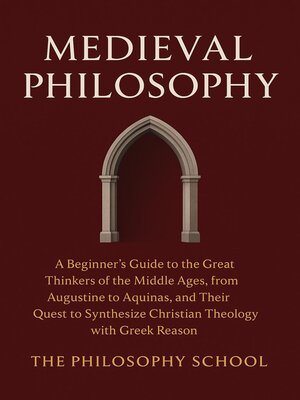Medieval Philosophy
ebook ∣ A Beginner's Guide to the Great Thinkers of the Middle Ages, from Augustine to Aquinas, and Their Quest to Synthesize Christian Theology with Greek Reason · Western Philosophy
By The Philosophy School

Sign up to save your library
With an OverDrive account, you can save your favorite libraries for at-a-glance information about availability. Find out more about OverDrive accounts.
Find this title in Libby, the library reading app by OverDrive.



Search for a digital library with this title
Title found at these libraries:
| Library Name | Distance |
|---|---|
| Loading... |
Step into the vibrant intellectual world of the Middle Ages, an era far from 'dark' but instead alight with the monumental quest to forge a unified worldview from two profound legacies: the divine revelation of Jerusalem and the rigorous reason of Athens.
MEDIEVAL PHILOSOPHY: A Beginner's Guide invites you on an accessible journey through a thousand years of Western thought, exploring the remarkable efforts of its greatest minds to reconcile Christian theology with Greek philosophy. From the fall of Rome to the cusp of the Renaissance, witness the intellectual drama unfold:
This beginner's guide demystifies complex philosophical concepts, making the profound insights and persistent struggles of the medieval mind accessible to contemporary readers. It's an essential resource for anyone seeking to understand the foundational ideas that shaped Western civilization and continue to resonate in discussions of faith, reason, and reality today.







